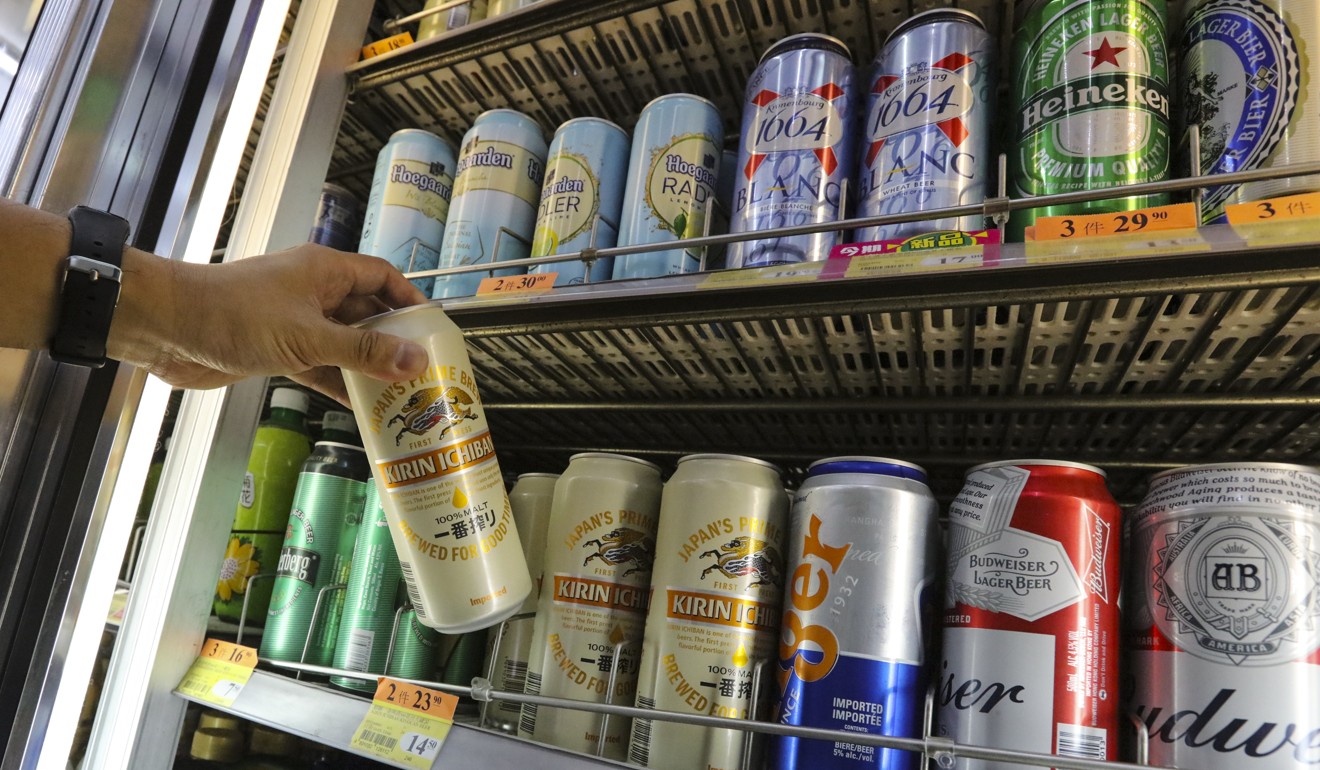
Hong Kong alcohol office puts extra 30 inspectors on streets as new rule banning sale of booze to under-18s comes into effect
- Friday marks start of new regulations outlawing sale of alcohol to under-18s
- Shopkeepers welcome law as they begin checking customers’ ID
The Tobacco and Alcohol Control Office has put an extra 30 inspectors on Hong Kong’s streets to ensure retailers are enforcing the new law regulating the sale of booze to minors.
Officers will conduct random inspections in shops across the city, while shopkeepers have stepped up measures preventing children from buying alcohol after the new law took effect on Friday.
Customers will now be required to show identification proving they are aged 18 and above, and any retailer caught selling alcohol to minors risks being prosecuted.

Dr Jeff Lee Pui-man, the head of the office, said its staff will ensure retailers have a sign about new law displayed in a prominent location, and shopkeepers caught selling alcohol to under-18s would be prosecuted.
“If [the shopkeeper] is uncertain about the age of a customer, it is better for them not to sell any alcohol to them,” Lee said.
“There is a similar law on tobacco control. From what we heard, it did not seem to create many disputes. We hope the public were ready for the new measures in time.”
On Friday, shopkeepers wary of falling foul of the new law, said they were keeping a sharper eye out than usual for minors trying to buy alcohol.
What teens have to say on ways to tackle underage drinking, beyond the new law
“I checked the ID of everyone who came to buy alcohol today, even the elderly,” said a staff member of a Circle K convenience store in Central near Lan Kwai Fong, who refused to be named. She said no minors had tried to buy alcohol so far.
Other staff in four 7-Eleven stores visited by the Post were also seen checking their customers’ ID.
The restrictions on the sale of alcohol also applies to restaurants, and automatic vending machines, which can be used with credit cards or Octopus cards.
Lee suggested that in the case of the latter, sellers adjust the machines so they only work in the presence of an adult.
The maximum fine for anyone breaking the new law is HK$50,000 (US$6,400), while failing to display a sign for the new law brings a HK$25,000 fine.
Shoppers largely supported the new measures.
“I think it’s a good policy. I support the government’s ban on the sales of alcohol to minors,” said Poon Ho-yan, 23. “Young people under 18 should not drink alcohol because it’s unhealthy.”
A 15-year-old girl said she did not drink.
“Alcohol shouldn’t be sold to underage people,” Sylvia So said. “The government’s ban is for the benefit of ensuring the proper use of alcohol.”
The new move was prompted by a worrying trend for binge drinking among youngsters in the city.
According to the Narcotics Division of the Security Bureau, between 2014 and 2015, alcohol was the most popular drug among young people, with 56.2 per cent admitting to having tried it.
Confessions of an underage drinker: vodka, jello shots, heavy make-up and a fake ID
The Centre for Health Protection has also expressed concern about a rise in the proportion of students who say they have binge drunk. In a 2016 study, 43.1 per cent of those polled said they had their first taste of alcohol before the age of 18.
Before the regulation, major retailers in the city had voluntarily adopted a measure to refuse the sale of alcohol to people younger than 18. But a review made by the Post last year found that approach was rarely effective.
In the Post’s experiment, a 13-year-old schoolgirl asked to pose as a customer was able to buy alcohol, including hard liquor, in five of the seven shops she visited in Yuen Long.


